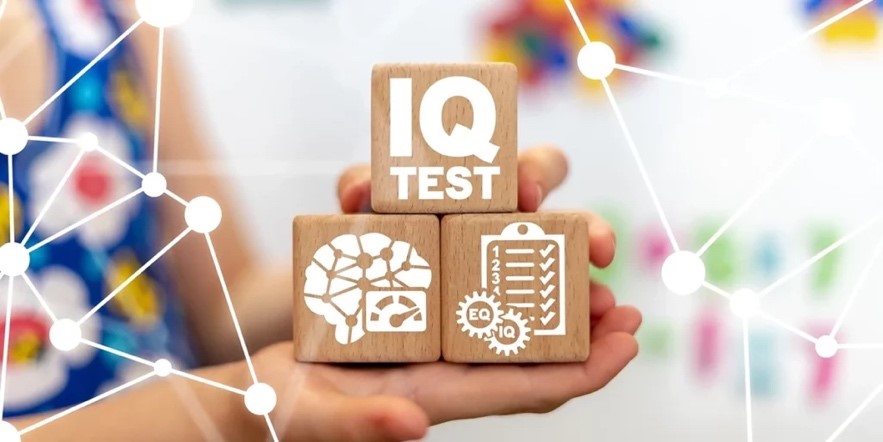Behind the Scenes of Creating an IQ Test
IQ tests are widely recognized as tools for measuring intelligence, but the process behind their creation is less commonly understood. Each IQ test is the result of a meticulous journey involving extensive research, testing, and refinement. This article delves into the stories behind the scenes of developing IQ tests, shedding light on the challenges, innovations, and dedication involved in crafting these essential tools.
The Birth of an IQ Test: From Concept to Reality
Behind the Scenes of Creating an IQ TestIQ tests are widely recognized as tools for measuring intelligence, but the process behind their creation is less commonly understood. Each IQ test is the result of a meticulous journey involving extensive research, testing, and refinement. This article delves into the stories behind the scenes of developing IQ tests, shedding light on the challenges, innovations, and dedication involved in crafting these essential tools.
The Birth of an IQ Test: From Concept to Reality
The Role of Experts: Crafting Each Question with Care
Testing the Test: Validation and Calibration
Challenges in Test Development: Balancing Complexity and Accessibility
Continuous Improvement: The Evolution of IQ Test
Real-World Impact: The Stories Behind the Scores
10 Surprising Facts About IQ The concept of Intelligence Quotient (IQ) has fascinated people for over a century, often sparking debates and discussions about what it really means to be intelligent. While IQ tests are widely recognized, many intriguing aspects of IQ remain less well-known. In this article, we delve into some surprising facts and unexpected truths about IQ that might challenge your assumptions and broaden your understanding of intelligence.
1. IQ is Not Fixed for Life
2. IQ Tests Measure Specific Types of Intelligence
3. The Flynn Effect: IQ Scores Have Been Rising Over Time
4. Cultural and Socioeconomic Factors Influence IQ Scores
5. High IQ Doesn’t Guarantee Success
6. IQ and Creativity Are Not the Same
7. The Role of Emotional Intelligence (EQ)
8. The Impact of Early Childhood on IQ
9. The Myth of the "Genius Gene"
10. The Future of IQ Testing
Conclusion IQ is a fascinating and complex subject, full of surprises and nuances that challenge our traditional understanding of intelligence. While IQ tests provide valuable insights into cognitive abilities, it is important to remember that they are just one piece of the puzzle. Intelligence is multifaceted, and factors like creativity, emotional intelligence, and life experiences all play a significant role in shaping who we are. By embracing the full spectrum of human intelligence, we can better appreciate the diverse ways in which people think, learn, and succeed in the world. |
The Role of Experts: Crafting Each Question with Care
|
|
One of the most critical steps in developing an IQ test is the design of individual test items. This process is anything but arbitrary; each question is carefully crafted by experts with deep knowledge in psychology, cognitive science, and education. These experts draw on decades of research to ensure that each item is not only challenging but also fair and unbiased. For instance, when designing verbal reasoning questions, experts consider cultural and linguistic diversity to avoid biases that could disadvantage non-native speakers. Similarly, in designing spatial reasoning tasks, they ensure that the questions are accessible to individuals with different levels of visual experience.
|
Testing the Test: Validation and Calibration
|
|
Once the test items are created, the next phase involves extensive testing and validation. This step is crucial for ensuring that the test accurately measures what it is intended to measure. During this phase, the test is administered to a diverse sample of individuals representing various demographics, including age, education level, and cultural background. The data collected from these test-takers is analyzed to determine the reliability and validity of each question. Items that do not perform as expected—whether they are too difficult, too easy, or fail to differentiate between levels of ability—are revised or discarded. This process of testing, analyzing, and refining continues until the test meets rigorous standards of accuracy and fairness.
|
Challenges in Test Development: Balancing Complexity and Accessibility
|
|
Once the test items are created, the next phase involves extensive testing and validation. This step is crucial for ensuring that the test accurately measures what it is intended to measure. During this phase, the test is administered to a diverse sample of individuals representing various demographics, including age, education level, and cultural background. The data collected from these test-takers is analyzed to determine the reliability and validity of each question. Items that do not perform as expected—whether they are too difficult, too easy, or fail to differentiate between levels of ability—are revised or discarded. This process of testing, analyzing, and refining continues until the test meets rigorous standards of accuracy and fairness.
|
One of the significant challenges in developing an IQ test is balancing complexity with accessibility. An effective IQ test must be challenging enough to differentiate between different levels of intelligence, yet accessible enough for a broad range of people to take. This balance is not easy to achieve and often requires multiple iterations of test development.
Moreover, test developers must consider how to adapt the test for different contexts, such as online platforms. Online IQ tests need to be designed with user experience in mind, ensuring that they are easy to navigate and free from technical issues that could affect performance.
Continuous Improvement: The Evolution of IQ Test

Even after an IQ test is released, the work is far from over. The field of cognitive science is constantly evolving, and so too must IQ tests. As new research emerges, test developers revisit and revise existing tests to incorporate the latest findings. This continuous improvement process ensures that IQ tests remain relevant, accurate, and reflective of the current understanding of human intelligence.
For example, recent advances in neuropsychology have led to the development of new test items that better assess fluid intelligence, or the ability to solve novel problems. Similarly, growing awareness of cultural bias in testing has prompted the development of more inclusive test items that are fair to individuals from diverse backgrounds.
Real-World Impact: The Stories Behind the Scores

The stories behind IQ test development are not just academic exercises—they have real-world implications. For many individuals, an IQ test score can influence educational opportunities, career paths, and personal self-perception. Understanding the effort and expertise that go into creating these tests can help individuals and organizations use IQ tests more effectively and ethically.
For example, a student identified as gifted based on an IQ test may receive opportunities for advanced learning that could shape their future career. Conversely, understanding the limitations of IQ tests can help avoid over-reliance on these scores, recognizing that intelligence is multifaceted and not fully captured by a single number.
The creation of an IQ test is a complex, ongoing process that involves a deep understanding of cognitive science, a commitment to fairness, and a dedication to continuous improvement. The stories behind these tests reveal the challenges and triumphs of translating the abstract concept of intelligence into a measurable form. By appreciating the intricate work that goes into developing IQ tests, we can better understand their value and limitations, and use them as tools for growth and self-discovery.
10 Surprising Facts About IQ
The concept of Intelligence Quotient (IQ) has fascinated people for over a century, often sparking debates and discussions about what it really means to be intelligent. While IQ tests are widely recognized, many intriguing aspects of IQ remain less well-known. In this article, we delve into some surprising facts and unexpected truths about IQ that might challenge your assumptions and broaden your understanding of intelligence.
1. IQ is Not Fixed for Life

Many people believe that their IQ score is set in stone from birth, but this is not entirely true. While genetics play a significant role in determining IQ, environmental factors such as education, nutrition, and even mental stimulation can influence IQ over time. Studies have shown that IQ can increase with intellectual engagement and educational opportunities, especially during childhood and adolescence. Conversely, lack of stimulation or prolonged stress can lead to a decline in cognitive abilities.
2. IQ Tests Measure Specific Types of Intelligence

One of the common misconceptions about IQ is that it measures all aspects of intelligence. In reality, most traditional IQ tests focus on specific cognitive abilities, such as logical reasoning, verbal comprehension, and spatial awareness. These tests are excellent at assessing what is known as "g" or general intelligence, but they don't necessarily capture other forms of intelligence, such as creative thinking, emotional intelligence (EQ), or practical problem-solving skills. This has led to the development of theories like Howard Gardner's multiple intelligences, which suggest that intelligence is a more diverse and multi-faceted concept.
3. The Flynn Effect: IQ Scores Have Been Rising Over Time

One of the most surprising trends in IQ research is the Flynn Effect, named after the researcher James Flynn. This phenomenon refers to the observation that average IQ scores have been steadily increasing over the past century. This increase is believed to be due to a combination of factors, including better education, improved nutrition, and more complex environments that stimulate cognitive development. However, recent data suggests that this trend may be slowing or even reversing in some parts of the world, possibly due to changes in education systems or lifestyle factors.
4. Cultural and Socioeconomic Factors Influence IQ Scores

While IQ tests are designed to be as objective as possible, cultural and socioeconomic factors can still influence test performance. For example, test-takers from different cultural backgrounds may interpret certain questions differently, or they may have had varying levels of exposure to the types of knowledge and problem-solving skills that IQ tests measure. Similarly, socioeconomic status can affect access to educational resources and opportunities, which in turn can influence IQ scores. This highlights the importance of considering context when interpreting IQ results.
5. High IQ Doesn’t Guarantee Success

It’s a common assumption that a high IQ automatically leads to success in life, but the reality is more complex. While a higher IQ can provide certain cognitive advantages, such as better problem-solving skills and faster learning, it does not guarantee success in personal or professional life. Success is influenced by a multitude of factors, including emotional intelligence, social skills, creativity, perseverance, and even luck. In fact, some studies suggest that beyond a certain point, factors like motivation and interpersonal skills play a more significant role in achieving success than IQ alone.
6. IQ and Creativity Are Not the Same

While there is some overlap between IQ and creativity, they are distinct cognitive abilities. IQ tests often focus on convergent thinking, which involves finding the single best solution to a problem. Creativity, on the other hand, is more about divergent thinking—the ability to generate multiple ideas or solutions to a problem. Interestingly, research shows that individuals with high IQs often exhibit strong creative potential, but creativity is not limited to those with high IQ scores. Creativity can flourish across a broad range of cognitive abilities.
7. The Role of Emotional Intelligence (EQ)

In recent years, the concept of emotional intelligence (EQ) has gained significant attention as an important complement to IQ. While IQ measures cognitive abilities, EQ refers to the ability to understand and manage one’s own emotions, as well as the emotions of others. High EQ is linked to better mental health, stronger relationships, and greater success in social and professional settings. Some researchers argue that EQ may be just as important, if not more so, than IQ in determining overall life success.
8. The Impact of Early Childhood on IQ

Early childhood is a critical period for cognitive development, and experiences during this time can have a lasting impact on IQ. Studies have shown that early childhood education, nurturing home environments, and positive social interactions can significantly boost cognitive development and lead to higher IQ scores later in life. Conversely, neglect, abuse, or chronic stress during early childhood can negatively affect brain development and result in lower IQ scores.
9. The Myth of the "Genius Gene"

While genetics play a significant role in determining IQ, there is no single "genius gene" that guarantees high intelligence. Intelligence is influenced by a complex interplay of multiple genes, each contributing a small effect, along with environmental factors. Additionally, research has shown that even individuals with a genetic predisposition for high intelligence require stimulating environments and opportunities to reach their full cognitive potential.
10. The Future of IQ Testing

As our understanding of intelligence continues to evolve, so too does the approach to measuring it. Modern IQ tests are increasingly incorporating elements that assess a broader range of cognitive abilities, including working memory, processing speed, and even aspects of social and emotional intelligence. There is also growing interest in using technology, such as artificial intelligence and machine learning, to create more dynamic and adaptive testing environments that can provide a more nuanced understanding of an individual's cognitive profile.
Conclusion
IQ is a fascinating and complex subject, full of surprises and nuances that challenge our traditional understanding of intelligence. While IQ tests provide valuable insights into cognitive abilities, it is important to remember that they are just one piece of the puzzle. Intelligence is multifaceted, and factors like creativity, emotional intelligence, and life experiences all play a significant role in shaping who we are. By embracing the full spectrum of human intelligence, we can better appreciate the diverse ways in which people think, learn, and succeed in the world.




